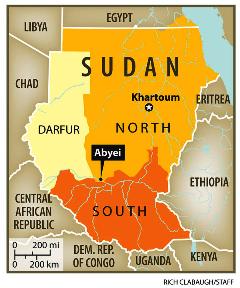2022: major events in South Sudan
January 2, 2022 (JUBA) – The year 2022 is gone, yet 2023 presents a unique opportunity to reflect on the previous year with hope and optimism. The region, however, witnessed some positive achievements, including peaceful power transitions and peace agreements that offered hope in bringing stability and resolving the many crises that have badly hit region.
Below is a summary of events that occurred in South Sudan and the region;
South Sudan witnessed an unprecedented economic meltdown, exacerbated by crippling hyperinflation and historic flooding. The situation has rendered millions of citizens hopeless, with aid agencies anticipating that over 7 million people could face severe food shortages and starvation.
The previous year saw a spike in insecurity and a large-scale upsurge in communal violence in three regions of South Sudan. The worse scenarios were in the Twic-Ngok border dispute, Upper Nile multipronged conflict, Jonglei-Pibor Administrative Area cross-border violence, Tonj communal violence, ambushes, and targeted killings on highways in Equatoria region.
On the political arena, the Revitalized Transitional Government of National Unity (R-TGoNU) and the parties to the September 2018 peace agreement reneged and consequently failed to implement the agreement. Certain key components of the peace accord have remained unimplemented, despite a series of extensions and four long years of the transitional period.
In August, however, the parties to the revitalized peace agreement signed a roadmap for extension of the transitional period for addition 24 months.
Of concern has been the ever-shrinking political space. The ruling party (SPLM) under President Salva Kiir was been faulted for harassing, beating and arbitrary arresting members of opposition parties across the country. A case in point was the recent incident in Northern Bahr el Ghazal State, where members of the armed opposition movement (SPLM-IO) were beaten, arbitrarily arrested and denied opportunity to conduct activities.
The world’s youngest nation also witnessed continuous suppression of fundamental constitutional rights such as lack of access to information, freedom of the press, and association, arbitrarily arrest, illegal detention, torture and forced exile of journalists and media practitioners continued.
Generally, conflict, climate change, drought, grain shortages and inflation were marked as the major events that devastate the African region in 2022. Climate change induced extreme and deadly weather conditions were amplified in the Horn of Africa. As a result, millions across the region continue to face the worst in four decades, according to the United Nations.
While the East African countries and the continent at large is yet to fully recover from the socio-economic repercussions of the COVID-19 pandemic, the Russia-Ukraine conflict has continued to directly affect many African countries.
The Russia-Ukraine conflict which posed another significant threat to the global economy has caused a serious disruptions in the supply chain of food grains including wheat to those African countries. This is because most of the African countries are heavily reliant on food imports from both Russia and Ukraine.
After two years of conflict that claimed over 500,000 lives, the Ethiopian government and the Tigray People’s Liberation Front (TPLF) signed a peace deal on November 2, 2022. The truce has held so far and the reopening of humanitarian access during the past few weeks has brought some relief to the people of Tigray, who had been under a defacto siege for the last two years.
(ST)

